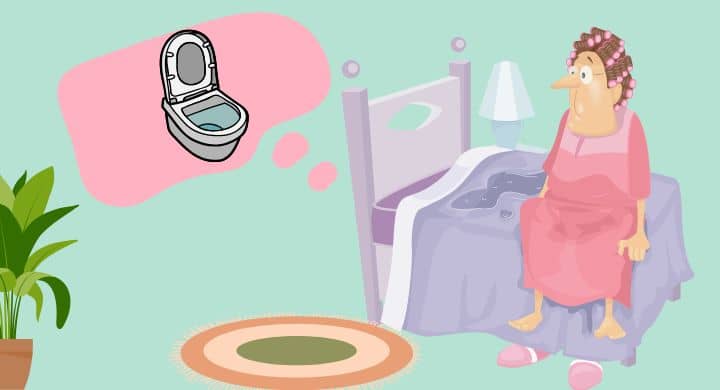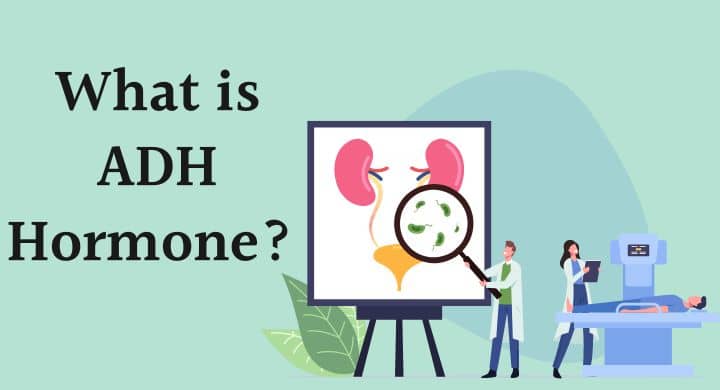What is the ADH hormone?
ADH or vasopressin hormone refers to Anti-diuretic hormone or sometimes Vasopressin. It is produced by the base of your brain called the hypothalamus and stored by the Pituitary glands.
Interestingly, Pituitary glands release the ADH hormone into the bloodstream when required. Anti-diuretic helps control sustaining the required water level. It does so by limiting the amount of water that passes through the urine.
The lower level of ADH hormone can cause frequent urination during the night. You must have seen some people facing problems of often urination at night. That’s probably because of the low-level ADH hormone. This is why people often look for how to increase ADH at night naturally.
Moreover, the ADH hormone is responsible for maintaining blood pressure along with improving memory.
However, low or high levels of ADH hormone can potentially disrupt some of these functions. So, knowing what is ADH isn’t just enough.
What Happens if ADH Levels are Low? [Symptoms]

The primary symptom of the lower level of ADH hormone is Diabetes insipidus. It is a rare condition where the body produces too much urine and also reduces the ability to retain water properly.
In fact, there are two factors that cause diabetes insipidus.
- The first one includes a decrease in the production of ADH hormone by the hypothalamus.
- The other refers to the decrease in the secretion of ADH hormone from pituitary glands.
These are the two factors that lead to a lower level of ADH hormone. If you’re low on ADH you may feel, excessive urination which is referred to as “polyuria”.
As it causes frequent urination, it causes dehydration too which further leads to extreme thirst – a condition called “polydipsia”.
Aging also is a factor that affects the level of ADH hormones. Consider visiting your doctor to get monitored your ADH levels regularly.
Hope you get the idea of what is ADH hormone and What happens if ADH levels are low. But wait, is there any way to increase them? Yes, of course, and that’s why we are here. Without any additional dialogue, let’s get into it.
How To Increase ADH Level?
When it comes to increasing ADH levels, there are no factors impacting the production and secretion of ADH hormone inside your body. Below are some factors listed to help you regulate the ADH level.
#1. Alcohol & Caffeine
If you’re running low on ADH level consider drinking fewer beverages at night. Especially prohibit alcohol and caffeine-based beverages as they lead your body to produce more urine.
#2. Limit Salt Intake
In addition, limiting salt intake can also help increase ADH levels. It has been seen reducing the consumption of salt impacts your urination frequencies positively, especially during nighttime.
#3. Raisin
To regulate the ADH hormone level, one can consider raisins, especially before bed to reduce frequent nighttime urination (NOCTURIA). This is how to increase ADH at night naturally.
#4. Glycine
Consuming more plant-based foods provides you with a good amount of glycine. Glycine is an amino acid that can potentially increase the secretion of ADH hormone.
Now you know how to naturally regulate ADH levels and also what foods increase vasopressin.
In addition, you may also consider taking supplements to increase your ADH hormone level. Along with these supplements, there are also some glycine-based supplements that help regulate the ADH level.
But, be careful, because excess ADH secretion can also impact kidney functions negatively.
What Happens if Someone Has Too Much ADH?
There are different types of hormones and each has its own own specified functions. ADH hormone is essential to regulate blood pressure along with some kidney functions. However, too much on anything is bad and so is the ADH hormone.
When the pituitary glands have more than enough ADH hormone, it signals the kidneys to retain water in the body.
Moreover, the retained water remains in your body and starts diluting the blood. It further causes a lower concentration of salt in the body.
However, there are many factors that stimulate the excess secretion of ADH hormones. Some of the factors are drug abuse or side effects and disease-related to the lungs, hypothalamus, or pituitary.
Besides these, there is also the Syndrome of Inappropriate Anti-Diuretic Hormone Secretion (SIADH). In this condition, your kidney tends to retain more water in the body.
Wrapping Up
ADH is essential for many body functions. It plays a vital role in diluting your blood, increasing blood volume along with regulating your blood pressure.
However, some factors create imbalances in the level of ADH. An increase or decrease in ADH level can potentially impact your health negatively.
But there are things you can do to maintain the ADH level. Some plant-based foods can help you through or you can also take the help of supplements to overcome the condition.
And last but not least, if the condition stays for long, consult your doctor and that’s what doctors are meant for. There are several tests that help determine your ADH levels. So, don’t hesitate to ask your doctor.
This is all for now. If you know some other ways of increasing ADH levels naturally, feel free to share your experiences.
